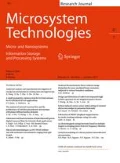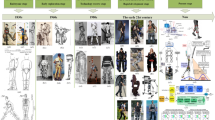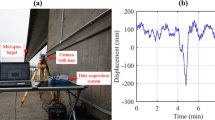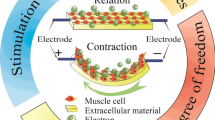Abstract
A microelectromechanical system (MEMS) inertial switch is both a sensor and an actuator by only capturing a threshold and a close/open timestamp, yielding unique benefits like lower power consumption, lower costs, small size and large volume production. A comprehensive survey of the design schemes, performance aspects and dynamic test methods of the MEMS inertial switches is provided. Different reported varieties and design schemes of the switch have been reviewed emphasizing on directional sensitivity, acceleration threshold sensitivity, mechanism of contact-enhancement, and their advantages and disadvantages. Further, the dynamic test methods to provide feedback to the design-and-simulation process, including electrical method and optical methods, have been compared and discussed. In the end, a main summary and outlook about the MEMS inertial switches has been provided to aid in the development of the future research in this field.


Reproduced from (Gerson et al. 2014)

Reproduced from (Greywall 2007)

Reproduced from (Currano et al. 2013)

Reproduced from (Chen et al. 2014a)

Reproduced from (Cao et al. 2015)


Reproduced from (Chen and Yang 2007)

Reproduced from (Zhang et al. 2017b)

Reproduced from (Cai et al. 2008a)

Reproduced from (Cai et al. 2008a)

Reproduced from (Deng et al. 2013)

Reproduced from (Xi et al. 2014)

Reproduced from (Xi et al. 2014)

Reproduced from (Lee et al. 2012)

Reproduced from (Lee et al. 2012)

Reproduced from (Yang et al. 2012)

Reproduced from (Matsunaga and Esashi 2002)

Reproduced from (Matsunaga and Esashi 2002)

Reproduced from (Jia et al. 2007)



Reproduced from (Zhao et al. 2007)


Reproduced from (Rembe et al. 2001c)

Reproduced from (Lawrence and Rembe 2003)

Reproduced from (Rembe et al. 2001a)

Reproduced from (Currano et al. 2010)

Reproduced from (Cao et al. 2017)
Similar content being viewed by others
References
Bao M, Yang H (2007) Squeeze film air damping in MEMS. Sens Actuators A Phys 136(1):3–27
Bosseboeuf A, Petitgrand S (2003) Characterization of the static and dynamic behaviour of M(O)EMS by optical techniques: status and trends. J Micromech Microeng 13(4):S23–S33
Brenner MP, Lang JH, Li J et al (2003) Optimal design of a bistable switch. Proc Natl Acad Sci 100(17):9663–9667
Burdess JS, Harris AJ, Wood D et al (1997) A system for the dynamic characterization of microstructures. J Microelectromech Syst 6(4):322–328
Burns DJ, Helbig HF (1999) A system for automatic electrical and optical characterization of microelectromechanical devices. J Microelectromech Syst 8(4):473–482
Cai HG, Ding GF, Yang ZQ et al (2008a) Design, simulation and fabrication of a novel contact-enhanced MEMS inertial switch with a movable contact point. J Micromech Microeng 18:115033
Cai H, Yang Z, Ding G et al (2008b) Fabrication of a MEMS inertia switch on quartz substrate and evaluation of its threshold acceleration. Microelectron J 39(9):1112–1119
Cai H, Yang Z, Ding G et al (2009) Development of a novel MEMS inertial switch with a compliant stationary electrode. IEEE Sens J 9(7):801–808
Cao Y, Xi Z, Yu P et al (2015) A MEMS inertial switch with a single circular mass for universal sensitivity. J Micromech Microeng 25(10):105005
Cao Y, Xi Z, Yu P et al (2017) Optical measurement of the dynamic contact process of a MEMS inertial switch under high shock loads. IEEE Trans Ind Electron 64(1):701–709
Chen GY, Yang LM (2007) Fabrication of a high-g micro impact switch. Explos Shock Waves 27(2):190–192
Chen GY, Wu JL, Zhao L et al (2009) Low-g micro inertial switch based on Archimedes’ spiral. Opt Precis Eng 17(6):1257–1261
Chen W, Wang Y, Ding G et al (2014a) Simulation, fabrication and characterization of an all-metal contact-enhanced triaxial inertial microswitch with low axial disturbance. Sens Actuators A Phys 220:194–203
Chen W, Wang Y, Zhang Y et al (2014b) Fabrication of a novel contact-enhanced horizontal sensitive inertial micro-switch with electroplating nickel. Microelectron Eng 127:21–27
Chen W, Yang Z, Wang Y et al (2016) Fabrication and characterization of a low-g inertial microswitch with flexible contact point and limit-block constraints. IEEE/ASME Trans Mechatron 21(2):963–972
Choi J, Lee JI, Eun Y et al (2011) Aligned carbon nanotube arrays for degradation-resistant, intimate contact in micromechanical devices. Adv Mater 23(19):2231–2236
Chung CH, Ma RP, Shieh YC et al (2011) A robust micro mechanical-latch shock switch with low contact resistance. In: IEEE 16th international conference on solid-state sensors, actuators and microsystems, pp 1046–1051
Churaman WA, Currano LJ, Gee D et al (2008) Three-axis MEMS threshold accelerometer switch for enhanced power conservation of MEMS sensors. Adv Sci Technol 54:384–389
Cook EH, Tomaino-Iannucci MJ, Reilly DP et al (2018) Low-power resonant acceleration switch for unattended sensor wake-up. J Microelectromech Syst 27(6):1071–1081
Currano LJ (2010a) Latching microelectromechanical shock sensor systems: design, modeling, and experiments. Dissertation, University of Maryland
Currano LJ, Bauman S, Churaman W et al (2008) Latching ultra-low power MEMS shock sensors for acceleration monitoring. Sens Actuators A Phys 147(2):490–497
Currano LJ, Yu M, Balachandran B (2010) Latching in a MEMS shock sensor: modeling and experiments. Sens Actuators A Phys 159(1):41–50
Currano LJ, Becker CR, Smith GL et al (2012) 3-axis acceleration switch for traumatic brain injury early warning. In: IEEE 25th international conference on MEMS, pp 484–487
Currano LJ, Becker CR, Lunking D et al (2013) Triaxial inertial switch with multiple thresholds and resistive ladder readout. Sens Actuators A Phys 195:191–197
Davis CQ, Freeman DM (1998a) Statistics of subpixel registration algorithms based on spatiotemporal gradients or block matching. Opt Eng 37(4):1290–1299
Davis CQ, Freeman DM (1998b) Using a light microscope to measure motions with nanometer accuracy. Opt Eng 37(4):1299–1305
Del Tin L, Iannacci J, Gaddi R et al (2007) Non linear compact modeling of RE-MEMS switches by means of model order reduction. In: Proceedings of IEEE TRANSDUCERS, pp 635–638
Deng KF, Su WG, Li S et al (2013) A novel inertial switch based on nonlinear-spring shock stop. In: Proceedings of the IEEE transducer 2013 conference, pp 2381–2384
Du L, Li Y, Zhao J et al (2018) A low-g MEMS inertial switch with a novel radial electrode for uniform omnidirectional sensitivity. Sens Actuators A Phys 270:214–222
Freudenreich M, Mescheder U, Somogyi G (2004) Simulation and realization of a novel micromechanical bi-stable switch. Sens Actuators A Phys 114(2):451–459
Frobenius WD, Zeitman SA, White MH et al (1972) Microminiature ganged threshold accelerometers compatible with integrated circuit technology. IEEE Trans Electron Devices 19(1):37–40
Gerson Y, Schreiber D, Grau H et al (2014) Meso scale MEMS inertial switch fabricated using an electroplated metal-on-insulator process. J Micromech Microeng 24(2):025008
Go JS, Cho YH, Kwak BM et al (1996) Snapping microswitches with adjustable acceleration threshold. Sens Actuators A Phys 54(1–3):579–583
Granaldi A, Decuzzi P (2006) The dynamic response of resistive microswitches: switching time and bouncing. J Micromech Microeng 16(7):1108
Greywall DS (2007) MEMS-based inertial switch. US: 7,218,193
Guo ZY, Yang ZC, Lin LT et al (2009) A latching acceleration switch with cylindrical contacts independent to the proof-mass. In: Proceedings of the IEEE sensors, pp 1282–1285
Guo ZY, Zhang XY, Zhao QC et al (2010) A high-G acceleration latching switch with integrated normally-open/close paths independent to the proof-mass. In: Sensors, pp 885–888
Guo ZY, Yang ZC, Lin LT et al (2011) Design, fabrication and characterization of a latching acceleration switch with multi-contacts independent to the proof-mass. Sens Actuators A Phys 166(2):187–192
Hart MR, Conant RA, Lau KY et al (2000) Stroboscopic interferometer system for dynamic MEMS characterization. J Microelectromech Syst 9(4):409–418
Hwang J, Ryu D, Park C et al (2017) Design and fabrication of a silicon-based MEMS acceleration switch working lower than 10 g. J Micromech Microeng 27(6):065009
Iannacci J (2015) Reliability of MEMS: a perspective on failure mechanisms, improvement solutions and best practices at development level. Displays 37:62–71
Iannacci J, Repchankova A, Macii D et al (2009) A measurement procedure of technology-related model parameters for enhanced RF-MEMS design. In: Proceedings of IEEE AMUEM, pp 44–49
Jean D (2004) Integrated MEMS mechanical shock sensor. In: NDIA 48th annual fuze conference, pp 26–28
Jean DJ (2007) MEMS multi-directional shock sensor. US: 7,159,442
Jean D, Smith G, Kunstmann J (2007) MEMS multi-directional shock sensor with multiple masses. US: 7,194,889
Jia M, Li X, Song Z et al (2007) Micro-cantilever shocking-acceleration switches with threshold adjusting and ‘on’-state latching functions. J Micromech Microeng 17(3):567–575
Kim H, Jang YH, Kim YK et al (2014) MEMS acceleration switch with bi-directionally tunable threshold. Sens Actuators A Phys 208:120–129
Krehl P, Engemann S, Rembe C et al (1999) High-speed visualization, a powerful diagnostic tool for microactuators—retrospect and prospect. Microsyst Technol 5(3):113–132
Kuenzig T, Iannacci J, Schrag G et al (2012) Study of an active thermal recovery mechanism for an electrostatically actuated RF-MEMS switch. In: Proceedings of IEEE EuroSime, pp 1–7
Kwa T (2014) Low-G MEMS acceleration switch. US: 8,779,534
Lawrence EM, Rembe C (2003) MEMS characterization using new hybrid laser Doppler vibrometer/strobe video system. In: Proceedings of the SPIE reliability, testing, characterization. MEMS/MOEMS III, vol 5343, pp 45–55
Lawrence EM, Speller K, Yu D (2002) Laser Doppler vibrometry for optical MEMS. In: Proceedings of the 5th international conference on vibration measurement on laser technology, vol 4827, pp 80–88
Lawrence EM, Speller KE, Yu D (2003) MEMS characterization using laser Doppler vibrometry. In: Reliability, testing, and characterization of MEMS/MOEMS II, Proceedings of SPIE, vol 4980, pp 51–63
Lee JI, Song Y, Jung HK et al (2011) Carbon nanotubes-integrated inertial switch for reliable detection of threshold acceleration. In: Proceedings of the international conference on solid-state sensors and actuators, pp 711–714
Lee JI, Song Y, Jung H et al (2012) Deformable carbon nanotube-contact pads for inertial microswitch to extend contact time. IEEE Trans Ind Electron 59(12):4914–4920
Li XJ, Niu LJ, Zhai R et al (2013) MEMS omni-directional inertial switch with the slant of mass. J Detect Control 34(6):26–30
Li J, Wang Y, Li Y et al (2018) A contact-enhanced MEMS inertial switch with electrostatic force assistance and multi-step pulling action for prolonging contact time. In: Microsystem Technologies, pp 1–13
Lin HF, He HT, Bian YM et al (2009) Novel passive MEMS universal crash switch. MEMS Device Technol 46(6):358–361
Lin L, Zhao Q, Yang Z et al (2014) Design and simulation of a 2-axis low g acceleration switch with multi-folded beams. In: IEEE international conference on solid-state and integrated circuit technology, pp 1–3
Liu SJ, Hao YP (2013) Annular passive universal MEMS inertial switch. J Chin Inert Technol 21(2):240–244
Liu SJ, Hao YP, Liu FL (2014) Design and fabrication of universal inertial switch based on MEMS technology. Key Eng Mater 609:689–695
Loke Y, McKinnon GH, Brett MJ (1991) Fabrication and characterization of silicon micromachined threshold accelerometers. Sens Actuators A Phys 29(3):235–240
Ma W, Zohar Y, Wong M (2003) Design and characterization of inertia-activated electrical micro-switches fabricated and packaged using low-temperature photoresist molded metal-electroplating technology. J Micromech Microeng 13(6):892
Ma CW, Huang PC, Kuo JC et al (2013) A novel inertial switch with an adjustable acceleration threshold using an MEMS digital-to-analog converter. Microelectron Eng 69(2):1–7
Matsunaga T, Esashi M (2002) Acceleration switch with extended holding time using squeeze film effect for side airbag systems. Sens Actuators A Phys 100(1):10–17
Michaelis S, Timme HJ, Wycisk M et al (2000) Additive electroplating technology as a post-CMOS process for the production of MEMS acceleration-threshold switches for transportation applications. J Micromech Microeng 10(2):120
Mu FQ (2006) Design and test of high-g MEMS acceleration switch used in fuze safety system. Dissertation, Nanjing University of Science and Technology
Narasimhan V, Li H, Jianmin M (2015) Micromachined high-g accelerometers: a review. J Micromech Microeng 25(3):033001
Niessner M, Iannacci J, Peller A et al (2010) Macromodel-based simulation and measurement of the dynamic pull-in of viscously damped RF-MEMS switches. In: Proceedings of Eurosensors XXIV conference, pp 78–81
Noetzel J, Tönnesen T, Benecke W et al (1996) Quasianalog accelerometer using microswitch array. Sens Actuators A Phys 54(1):574–578
Ongkodjojo A, Tay FEH (2006) Optimized design of a micromachined G-switch based on contactless configuration for health care applications. J Phys Conf Ser 34(1):1044
Osterberg PM, Senturia SD (1997) M-TEST: a test chip for MEMS material property measurement using electrostatically actuated test structures. J Microelectromech Syst 6(2):107–118
Rembe C, Muller RS (2002) Measurement system for full three-dimensional motion characterization of MEMS. J Microelectromech Syst 11(5):479–488
Rembe C, Aschemann H, aus der Wiesche S et al (2001a) Testing and improvement of micro-optical-switch dynamics. Microelectron Reliab 41(3):471–480
Rembe C, Muller L, Muller RS et al (2001b) Full three-dimensional motion characterization of a gimballed electrostatic microactuator. In: Proceedings of IEEE international reliability symposium, pp 91–98
Rembe C, Kant R, Muller RS (2001c) Optical measurement methods to study dynamic behavior in MEMS. Proc SPIE 4000:127–137
Rembe C, Tibken B, Hofer EP (2001d) Analysis of the dynamics in microactuators using high-speed cine photomicrography. J Microelectromech Syst 10(1):137–145
Robinson CH (2004) Omnidirectional microscale impact switch. US: 6,765,160
Selvakumar A, Yazdi N, Najafi K (2001) A wide-range micromachined threshold accelerometer array and interface circuit. J Micromech Microeng 11(2):118
Smith GL (2012) Triaxial MEMS acceleration switch. US: 8,237,521
Speller K, Goldberg H, Gannon J et al (2002) Unique MEMS characterization solutions enabled by laser Doppler vibrometer measurements. Proc SPIE 4827:478–486
Tao YK, Liu YF, Dong JX (2014) Flexible stop and double-cascaded stop to improve shock reliability of MEMS accelerometer. Microelectron Reliab 54(6–7):1328–1337
Tønnesen T, Lüdtke O, Noetzel J et al (1997) Simulation, design and fabrication of electroplated acceleration switches. J Micromech Microeng 7(3):237–239
Van Spengen WM (2003) MEMS reliability from a failure mechanisms perspective. Microelectron Reliab 43(7):1049–1060
Wang Y, Feng Q, Wang Y et al (2013) The design, simulation and fabrication of a novel horizontal sensitive inertial micro-switch with low g value based on MEMS micromachining technology. J Micromech Microeng 23(10):105013
Wang Y, Yang Z, Xu Q et al (2015) Design, simulation and characterization of a MEMS inertia switch with flexible CNTs/Cu composite array layer between electrodes for prolonging contact time. J Micromech Microeng 25(8):085012
Whitley MR, Kranz MS, Kesmodel R et al (2005) Latching shock sensors for health monitoring and quality control. Prog Biomed Opt Imaging Proc SPIE 5717:185–195
Wittwer JW, Baker MS, Epp DS et al (2008) MEMS passive latching mechanical shock sensor. In: Proceedings of the ASME, international design engineering technical conference and computers and information in engineering conference, pp 581–587
Wu YB, Ding GF, Wang J et al (2010) Fabrication of low-stress low-stiffness leveraged cantilever beam for bistable mechanism. Microelectron Eng 87(11):2035–2041
Wycisk M, Tönnesen T, Binder J et al (2000) Low-cost post-CMOS integration of electroplated microstructures for inertial sensing. Sens Actuators A Phys 83(1–3):93–100
Xi Z, Zhang P, Nie W et al (2014) A novel MEMS omnidirectional inertial switch with flexible electrodes. Sens Actuators A Phys 212:93–101
Xie YJ (2006) Study on measurement methods and key technologies for dynamic characterization of MEMS microstructures. Dissertation, Huazhong University of Science and Technology
Xu Q, Yang Z, Sun Y et al (2017) Shock-resistibility of mems-based inertial microswitch under reverse directional ultra-high g acceleration for IoT applications. Sci Rep 7:45512
Yang Z, Ding G, Chen W et al (2007) Design, simulation and characterization of an inertia micro-switch fabricated by non-silicon surface micromachining. J Micromech Microeng 17(8):1598
Yang Z, Ding G, Cai H et al (2008) A MEMS inertia switch with bridge-type elastic fixed electrode for long duration contact. IEEE Trans Electron Devices 55(9):2492–2497
Yang HL, Yang HW, Wang J (2009a) Design of high gn micro acceleration switch. Transducer Microsyst Technol 28(5):84–86
Yang ZQ, Ding GF, Cai HG et al (2009b) Development of a shock acceleration microswitch with enhanced-contact and low off-axis sensitivity. In: Proceedings of the international conference on solid-state sensors, actuators, and microsystems conference transducer, pp 1940–1943
Yang Z, Ding G, Cai H et al (2009c) Analysis and elimination of the ‘skip contact’phenomenon in an inertial micro-switch for prolonging its contact time. J Micromech Microeng 19(4):045017
Yang Z, Zhu B, Chen W et al (2012) Fabrication and characterization of a multidirectional-sensitive contact-enhanced inertial microswitch with a electrophoretic flexible composite fixed electrode. J Micromech Microeng 22(4):045006
Yang Z, Ding G, Wang Y et al (2018) A MEMS inertial switch based on nonsilicon surface micromachining technology. In: Huang QA (ed) Micro electro mechanical systems, Micro/nano technologies, vol 2. Springer, Singapore, pp 945–995
Yoo K, Kim J (2009) A novel configurable MEMS inertial switch using microscale liquid-metal droplet. In: IEEE international conference on MEMS’09, pp 793–796
Yoo K, Park U, Kim J (2011) Development and characterization of a novel configurable MEMS inertial switch using a microscale liquid-metal droplet in a microstructured channel. Sens Actuators A Phys 166(2):234–240
Zhang ZM, Wang XS, Yang LM (2002) Impact switch for low acceleration. J Transducer Technol 21(7):28–30
Zhang Q, Yang Z, Xu Q et al (2016) Design and fabrication of a laterally-driven inertial micro-switch with multi-directional constraint structures for lowering off-axis sensitivity. J Micromech Microeng 26(5):055008
Zhang F, Wang C, Yuan M et al (2017a) Conception, fabrication and characterization of a silicon based MEMS inertial switch with a threshold value of 5 g. J Micromech Microeng 27(12):125001
Zhang F, Yuan M, Jin W et al (2017b) Fabrication of a silicon based vertical sensitive low-g inertial micro-switch for linear acceleration sensing. Microsyst Technol 23(7):2467–2473
Zhao J, Jia J, Wang H et al (2007) A novel threshold accelerometer with postbuckling structures for airbag restraint systems. IEEE Sens J 7(8):1102–1109
Zhao J, Yang Y, Fan K et al (2010) A bistable threshold accelerometer with fully compliant clamped-clamped mechanism. IEEE Sens J 10(5):1019–1024
Zhong Y, Zhang G, Leng C, Zhang T (2007) A differential laser Doppler system for one-dimensional in-plane motion measurement of MEMS. Measurement 40(6):623–627
Zhou Z, Nie W, Xi Z et al (2016) A high-electrical-reliability MEMS inertial switch based on latching mechanism and debounce circuit. IEEE Sens J 16(7):1918–1925
Acknowledgements
This work was supported in part by the National Natural Science Foundation of China (no. 51805268); China Postdoctoral Science Foundation (no. 2017M621745).
Author information
Authors and Affiliations
Corresponding author
Additional information
Publisher's Note
Springer Nature remains neutral with regard to jurisdictional claims in published maps and institutional affiliations.
Rights and permissions
About this article
Cite this article
Cao, Y., Xi, Z. A review of MEMS inertial switches. Microsyst Technol 25, 4405–4425 (2019). https://doi.org/10.1007/s00542-019-04393-4
Received:
Accepted:
Published:
Issue Date:
DOI: https://doi.org/10.1007/s00542-019-04393-4





